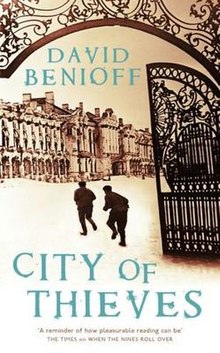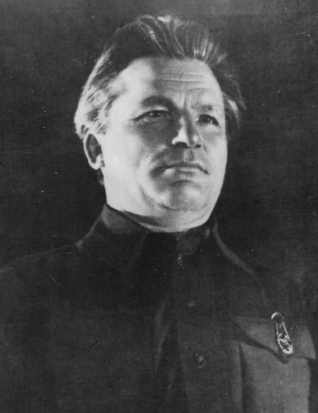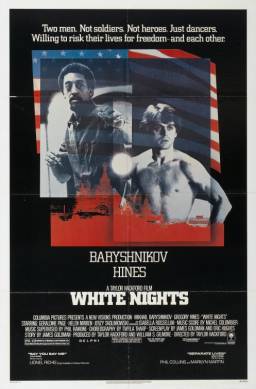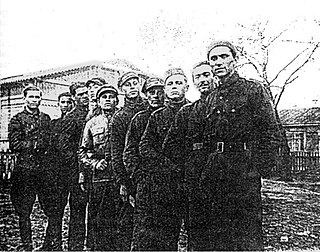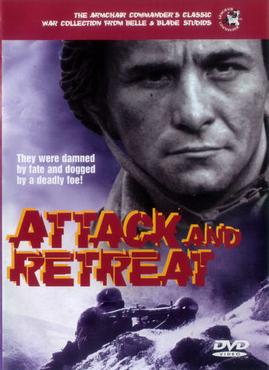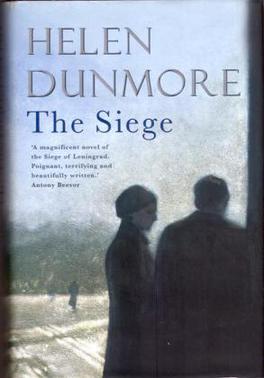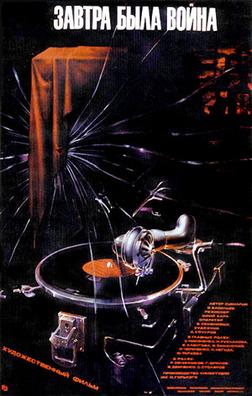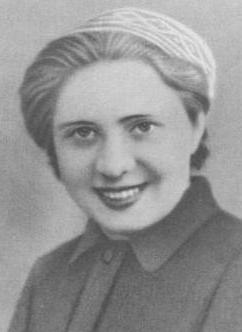Plot
The novel begins with David, an American screenwriter, as the narrator. When asked to write an autobiographical essay, David instead decides to write about Leningrad, where his grandfather grew up. He flies to Florida to speak with his grandfather, and for a week David records his grandfather's stories. David also makes note of the fact that his grandmother never cooks.
The narrator changes to David's grandfather, Lev, on New Year's Eve 1942 in Leningrad, Russia. Food is scarce due to the German siege of the city. Though his mother and sister have fled the city, Lev, at 17, stays behind to work as a firefighter. One night while sitting on the roof of his apartment building with his friends, they spot a German soldier falling from the sky in a parachute and run down into the street to investigate. When the German lands in the street, the friends loot the corpse, with Lev taking the man's knife. Russian troops arrive and nearly arrest the group for looting but they all escape except for Lev, who is taken to a prison called the Crosses.
After hours in his pitch dark prison cell a young deserter named Kolya is put into the cell. Kolya tells Lev that he left his post to defend his thesis on Ushakovo's The Courtyard Hound, a book and author who Lev has never heard of. The next morning, Lev and Kolya are taken to a mansion occupied by the NKVD—the Russian secret police. There, Colonel Grechko tasks them with finding a dozen eggs to make a cake for his daughter's wedding.
Lev and Kolya try to purchase eggs at a black market, where a large man offers to sell them eggs from his apartment. At the apartment, Lev and Kolya discover corpses and realize that the giant and his wife are cannibals. Lev and Kolya narrowly manage to escape unscathed. Kolya and Lev spend the night at the apartment of Kolya's friend, Sonya, who lives with several young doctors. Lev sleeps that night in the living room and hears Kolya and Sonya have sex in the next room.
The following morning, Lev and Kolya investigate a rumor of an old man keeping chickens on a roof. They discover the corpse of the old man, and the old man's sickly grandson still guarding a chicken coop. The child initially refuses Lev and Kolya's offers of help but ultimately offers them the last chicken he's been keeping warm under his coat. They take the chicken back to Sonya's in the hopes it will lay eggs in time, until one of the doctors returns and explains that the "chicken" is actually a rooster.
The next morning Kolya wakes Lev and says they're going to walk to a poultry collective in Mga. As they walk, Kolya shares more about The Courtyard Hound and they discuss Lev's father, a famous writer who was killed by the NKVD. As night falls, Kolya admits they're going the wrong way. They find a farmhouse, and inside they see four teenage girls dancing. After a brief standoff with the girls, Lev realizes that the girls are being kept as sex slaves by members of a Nazi death squad called the Einsatzgruppen . When Kolya asks the girls why they haven't fled, they are told of a young girl favored by the Germans who tried run away, but was caught, tortured, and murdered by an Einsatzgruppen officer named Abendroth. Lev and Kolya decide to kill the Nazis when they come later that night.
When the Nazis arrive that night, they are ambushed by Russian partisan fighters outside. Lev is intrigued to find that the partisans' best sniper, Vika, is a girl. Lev and Kolya follow the partisans to hunt Abendroth. As they walk, Kolya tells Lev more about The Courtyard Hound and Lev realizes the is actually Kolya's own work in progress. That night, they hide at a safe house where Kolya confesses to Lev that he was actually accused of desertion because he spent New Year's Eve searching for a woman to have sex with, and failed to return to his unit in time.
The next morning, the Germans find the group. They all escape except for a partisan, who is killed in front of Lev. Vika decides they should infiltrate the group of prisoners with the Germans, and are successful, but the partisan leader Markov is recognized by a prisoner he once robbed and is killed by the Germans. When the company reaches a schoolhouse, the prisoners are placed in a shed to sleep, and the following morning they discover that the prisoner who betrayed Markov has been murdered. Kolya suggests that Vika most likely killed the man. A convoy of German vehicles passes the prisoners, and Vika points out Abendroth's car at the end of the convoy. Kolya, who speaks German, talks amicably with the Germans, and returns with a plan involving Lev challenging Abendroth, a chess fan, to a match.
That night, Abendroth calls for Lev, Vika, and Kolya. He agrees to a chess match, and adds a dozen eggs to the wager at Kolya's request. The three are searched but the young soldier who searches them misses their hidden knives. Lev positions his pieces for an inevitable victory, and while Abendroth is contemplating his next move, Lev takes the opportunity to stab Abendroth. He kills Abendroth and a soldier fighting Kolya, losing his left index finger in the process. Vika grabs the Germans' guns, Kolya grabs the box of eggs, and the three jump out the window and escape into the woods.
With Leningrad in sight, Vika asks Lev for his full name so she can find him later, kisses him, and leaves to find another group of partisans. When Lev and Kolya reach the defenses of Leningrad the next morning, the soldiers on duty shoot at them and hit Kolya in one of his buttocks. When the lieutenant realizes that Kolya and Lev are working for Colonel Grechko, he loads Kolya and Lev into a truck and heads quickly for the hospital, but in sight of the hospital the truck's path is blocked by tanks and materiel transports. Kolya tries to tell Lev that everything's going to be fine, but dies in Lev's arms. Lev delivers the eggs to Colonel Grechko, and discovers that Grechko has already procured three dozen other eggs.
The German siege is lifted in January 1944. In 1945, Lev is in his apartment when Vika knocks on his door with her suitcase and a dozen eggs. Lev suggests they make an omelet, but Vika says that she does not cook.
